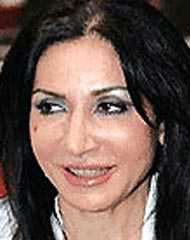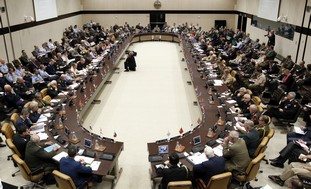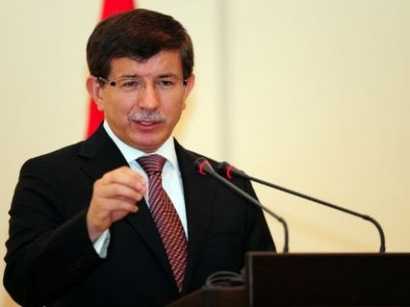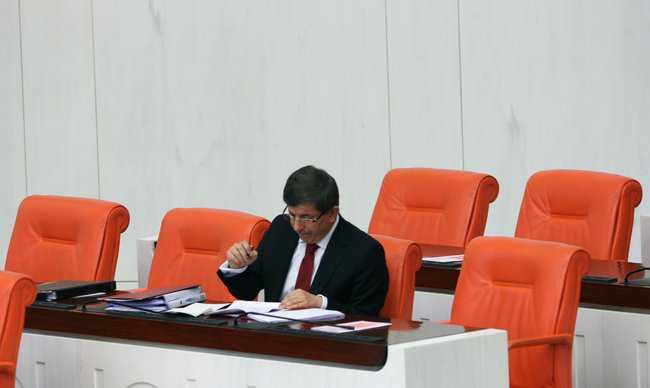NEWS ANALYSIS
Turkish Foreign Minister Ahmet Davutoglu speaks during a press conference to discuss how to boost aid to the countries worst affected on the drought and famine ravaging the Horn of Africa, on August 17, in Istanbul. (Mustafa Ozer/Getty Images )
With a newfound economic and political self-confidence, Turkey’s regional importance has been growing steadily in recent years. The current government has been reconnecting with its Islamic heritage and neighbors, while still keeping its traditionally close ties to the West. But while Western governments seems largely confident that Turkey will remain a trustworthy ally, some commentators see the emergence of a potentially hostile, Islamic superpower.
For 600 years, Turkey was the heart of the multi-cultural Ottoman Empire, which, at the height of its powers in the 16th and 17th centuries, encompassed large parts of southeastern Europe, southwestern Asia, and North Africa.
As the empire’s power declined in the 19th century, it tried to modernize and form alliances with Western powers. In World War I, the empire sided with Germany, signaling its deathblow. After the Allied victory, it was divided into several nations, and crumbled completely in the years after the war.
In 1923, the last sultan was defeated in the Turkish War of Independence and the Republic of Turkey was founded under revolutionary leader Kemal Atatürk. Since then, Turkey has been a modern, strictly secular nation-state, looking very much toward Europe.
That may be changing, however. The Justice and Development Party (AKP), which has ruled Turkey under Prime Minister Recep Tayyip Erdogan since 2002, is now looking to its glorious past to build its future, experts say.
In a March 2011 article for the Brookings Institute, “The Three Strategic Visions of Turkey,” Turkey scholar Ömer Taspinar describes the different currents in Turkish foreign policy. He defines the current Turkish government’s strategic vision with the now rather widely adopted term “neo-Ottomanism.”
The neo-Ottoman view “favors a more moderate version of secularism at home and a more activist policy in foreign affairs, particularly in terms of a willingness to mediate conflicts,” according to Taspinar. But it also has other characteristics, such as “a sense of grandeur and self-confidence in foreign policy.”
The man considered by many to be the architect and chief ideologue behind this new vision is the Turkish foreign minister, Ahmet Davutoglu.
Davotuglo is a university professor with a Ph.D. in international relations and has published several very influential books about Turkish foreign policy. He was long reluctant to accept a formal position due to his academic work, but was nevertheless a key political figure as Erdogan’s foreign policy advisor. In 2009, he eventually accepted the post of Foreign minister.
In an article from 2009 in Turkish newspaper Today’s Zaman, Davotuglo is described as the man responsible for forming closer ties with all actors in the region, including some controversial ones, like Hamas. The article notes that comparisons has been made between his very active, strategic role in shaping foreign policy, and that of Henry Kissinger in the United States in the 1970s.
After being appointed, Davotuglo indicated that Turkey would take a more proactive role in the Middle East, the Balkans, and the Caucasus.
“It has to take on the role of an order-instituting country in all these regions. … Turkey is no longer a country which only reacts to crises, but notices the crises before their emergence and intervenes in the crises effectively, and gives shape to the order of its surrounding region,” he said in a speech.
While this may not constitute empire-building, some commentators are concerned about Turkey’s direction over the last decade.
U.S.-based author and historian Srdja Trifkovic believes that Turkey, which is a NATO member and is currently negotiating European Union membership, is consciously but carefully moving away from the West, to forge its own power base.
“[Turkey’s] objective is to build up and cement [its] role as a regional power in its own right, fully independent of Washington and Brussels but always willing to act ‘multilaterally’ if Washington and Brussels go along with Ankara’s agenda,” he wrote in an e-mail to The Epoch Times.
In several sharply critical articles in recent years, Trifkovic has argued that Turkey is no longer the compliant ally that NATO and the West thinks it is.. While Turkey is playing along for now, “this is only postponing the day of reckoning … and the reigning team in Ankara is in my opinion fully reconciled to that.”
Trifkovic is also concerned about what he sees as the return of political Islam in Turkey, albeit in a “moderate” garb. While the United States, among others, have lauded Turkey’s economic progress and movement toward becoming a liberal democracy, he sees a creeping Islamization and intolerance.
“Turkish businessmen will tell you privately that sipping a glass of raki [Turkish liquor] in public may hurt their chances of landing government contracts; but it helps if their wives and daughters wear the hijab,” he wrote in an article in The Balkan Monitor in 2010.
He also noted in the article that Turkey under Erdogan and Davotuglo has formed closer relationships with several controversial regimes, such as in Iran, Sudan, and Syria, as well as Hamas.
The domestic opponents of the neo-Ottoman agenda are found among the old-time secular nationalists, or Kemalists. They are traditionally very wary of Islamic influence on politics, but also anything that may threaten the Turkish nation-state, such as Kurdish separatism. During the Cold War, the Kemalists were staunchly pro-West, but since the AKP came to power, the map has shifted.
The many reforms for political liberties and human rights passed by the AKP in order to accommodate the EU has not been popular among the Kemalists, who see them as weakening the nation and opening up for separatism and dissent. Many have therefore also turned against the West and Turkey’s EU project.
The Kemalist view has been dominant in the powerful Turkish army ever since the War of Independence. Three times between 1960 and 1980 they staged coups because they felt that the secular and nationalist system that Atatürk established in Turkey was under threat.
But the days of military coups may be over in Turkey. After an alleged attempted coup organized by the shadowy organization Ergenekon in 2007 was uncovered, dozens of high-ranking officers were arrested. In 2010, a referendum passed a 26-article bill that limited the military’s power.
Last month, the military wanted to promote or appoint 250 people who were awaiting hearings over the Ergenekon plot. Erdogan refused, and the military chief of staff subsequently resigned. The same day, the heads of the army, navy, and air force followed suit, being replaced by officers more loyal to the AKP.
While Ömer Taspinar argues in a recent article for Foreign Affairs that the end of the military as a check on civilian politics is a necessary step for Turkey to become a “normal” liberal democracy, Srdja Trifkovic believes that the events have more far-reaching implications.
“The collapse of the military as a political factor in its own right is a clear indicator that Kemalism is but an empty shell,” he said, indicating that the road is now paved for the AKP’s neo-Ottoman agenda.
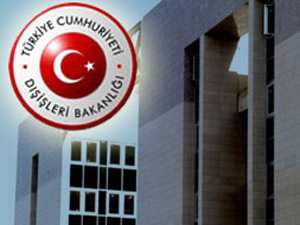 The statement notes that Turkish MFA receives Sarkozy’s words with astonishment and regret, Zaman daily of Turkey writes. “The French people will assess as to the degree such declarations, which are based on election calculations, correspond to French democracy, cultural and state traditions. Even though this problem, with respect to that painful time period in our joint history with the Armenians, is not discussed in several countries which are, or are not, parties, this can freely be discussed in Turkey.
The statement notes that Turkish MFA receives Sarkozy’s words with astonishment and regret, Zaman daily of Turkey writes. “The French people will assess as to the degree such declarations, which are based on election calculations, correspond to French democracy, cultural and state traditions. Even though this problem, with respect to that painful time period in our joint history with the Armenians, is not discussed in several countries which are, or are not, parties, this can freely be discussed in Turkey.
